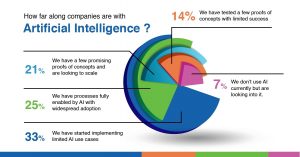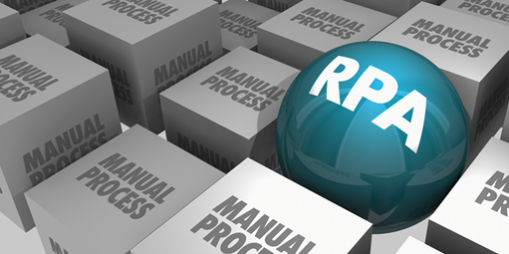What do you really know about RPA?
Robotic Process Automation is here to stay, and this is why….
Do you realize how many times a day you interact by means of RPA (Robotic Process Automation)? Repeatable tasks, that beforehand required a human, can now be performed via robotic automation. Let’s be honest, as much as we may miss the simpler and less connected lifestyle, we don’t want to give up today’s technology. The majority of the population would never trade their smartphones or smart feature devices, like Google Assistant or other voice-controlled intelligent personal assistants, for an entire library of books. We have learned to depend on our devices to the extent where we can’t fathom a life without our robotic buddies.
We don’t have to think of our personal technology in terms of ROI. We don’t care if Alexa or SIRI is saving us money. We only look at the amount of time we can maximize in a day by having the answers at our fingertips. The business world is very different and very much the same. RPA can give them a birds-eye view of their entire operation without accessing multiple systems while aligning them strategically to outperform the competition.
Investors are continually asking businesses to find ways to cut costs. Current trends are to streamline processes, minimize customer interaction, and utilize technologies like speech recognition and machine learning. When put into full motion, these tools can be automated to make judgements on future output. Companies that use RPA tools can configure the software to capture and interpret applications for manipulating data, processing a transaction, generating responses and collaborating with other digital systems. Significant research is available to enable businesses to look at the investment in their workforce in terms other than just the “cost of a resource.”
“Global robotic process automation (RPA) software revenue is projected to reach $1.89 billion in 2021, an increase of 19.5% from 2020, according to the latest forecast from Gartner, Inc. Despite economic pressures caused by the COVID-19 pandemic, the RPA market is still expected to grow at double-digit rates through 2024.
Services such as cloud-based technology and BPO (Business Process Outsourcing), are providing small business enterprises with many alternatives. Today’s customer is searching for less expensive methods to get the job done and looking for partnerships with vendors who can help them quickly scale to the next level.
PwC recently released their AL Predictions 2021 Report. They talked to more than 1,000 executives (including over 200 CEOs), with revenues of $5 billion and up. Those surveyed represented a wide range of data-intense industries including industrial products, consumer markets, financial services, and energy. “A quarter of the companies participating in our latest AI survey report widespread adoption of AI, up from 18% last year. Another 54% are heading there fast. And they’re no longer just laying the foundation. They’re reaping rewards from AI right now, in part because it has proven a highly effective response to the challenges brought about by the COVID-19 crisis.”
For the past decade, AI has been one of the top technological advances in machine-learning. Although the concept is no longer foreign, some businesses have yet to leave the “AI start gate” in implementing such technology. PwC has these findings after analyzing the 2021 responses:

The mortgage industry, especially the Title and Settlement sector, is an ideal match for RPA. The industry is data-dependent, transactional-based, submerged in regulation and heavily reliant on manpower.
PwC estimates a potential contribution of $15.7 trillion by 2030, as firms aim to improve labor productivity with AI technologies by task automation. This number means that global GDP can be 14% higher in 2030 as a result of AI.
Let’s call RPA an upgrade of every operational technology practised in the past. Although there is no magic potion available to make the transition, there are technology professionals available to help. If you determine its best to outsource the transition, it’s highly recommended you do thorough due diligence on the third-party vendor. Finding the right IT Partner with experience in your industry, known for quality work, and offering a reliable infrastructure to support your security and compliance requirements, is a must.
6 Points to Consider When Changing from Traditional Title and Settlement Processing to Robotic Process Automation
- Ensure the vendor/partner has the security requirements in place for RPA infrastructure, such as ISO or SOC 2 Type 2 certification.
- Ensure the vendor has the expertise to provide the digital transformation.
- Ensure the vendor employs resources with solid experience in title and settlement processes and one who listens to your unique concerns when transitioning to automated processes?
- Ensure the vendor has the bandwidth to build your RPA processes and manage those processes for you going forward.
- Ensure the vendor has a proven track record in meeting or exceeding turnaround time (TAT) requirements.
- Ensure the vendor has the ability to work 24 X 5, so you can provide services to your customers in real-time regardless of where they are in the world.
RPA can boost efficiency, increase the bottom-line and allow you to look at repetitive tasks as a piece of technology. It is a predictor of patterns; it scans massive amounts of data to provide foresight into the best outcomes achievable. Once implemented, RPA technology can also offer infinite reporting features. Putting technological updates in the workplace is like preparing for a race. Selecting the best partner will give you the winning edge. Committing to making it all happen…will win you the race.


